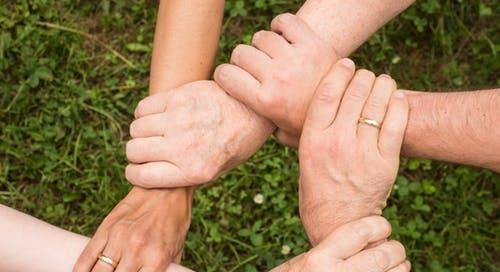The Art of Self-Care
"Love your neighbor as yourself" [V’ahavata L’reyacha Kamocha] וְאָֽהַבְתָּ֥ לְרֵעֲךָ֖ כָּמ֑וֹךָ
~Vayikra / Leviticus 19:18
Many interpretations are derived from the succinct command the Torah gives us in just three Hebrew words. The meaning I'd like to focus on might seem selfish at first. We are commanded to treat others as we do ourselves, but we might ignore the premise of this deceptively simple statement.
We, in the deepest recesses of our true selves, are a reflection of our Creator, .Hashem. How many of us think of ourselves this way on a daily basis? If we did, an even harder questions is how do we put this into practice? How do we begin to honor ourselves, as a unique and special creation? The command is to love others as ourselves, so the message here is that we have to practice self-love in order to open our hearts fully. The increased sensitivity and empathy we are encouraged to show others begins with having a measure of compassion for ourselves.
In my Mussar work, I have yet to come across anyone who is arrogant or conceited. In this self-selected group, of those individuals who want to do better and be better, are some of the sweetest an most unassuming people one would ever want to meet.
Instead, what I often find is that most people are hard on themselves, are their own worst critic, and usually, don't cut themselves a break. Maybe it's a self-selected group, but I do not see a lot of self-care or self-love pouring out from these tender individuals, feeding their own hungry egos. Instead, I hear memorable and emotional stories of hurt, scarring, and resilience, and a dogged determination to be open to new teachings in the goal of improving themselves even more.
I'm not sure that any one of us would treat our closest friend with as little compassion as we often seem to have for ourselves. Yet, it is an art to navigate these waters without letting our egos take over after it's gotten a taste of self-love. Self-love is not the narcissistic kind, not the love that excludes others….the type that precludes your being able to love others, but the compassionate love and acceptance that you have for yourself that opens your heart to having compassion and acceptance for others…because it is a familiar feeling.
How do we balance taking care of ourselves, doing what we need to do to honor our bodies and our souls without letting things get out of hand? There is an art to self-care that is grounded in practices.
Rely on our own tradition to center you. Involve yourself in learning our sacred texts. Fill yourself up with gratitude. Engage in doing mitzvot (commandments). Talk to God.
You won't go over the edge and you just might begin to recognize what a beautiful creation you really are.



